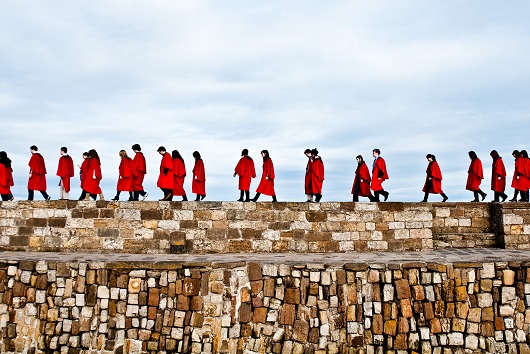St Andrews highlights economic benefit to the economy

Scotland’s oldest university has backed calls for the UK Government to reclassify international students as temporary visitors, not migrants.
The call from the University of St Andrews comes as a new report found widespread concerns about anti-immigration rhetoric surrounding international students who are currently included in the Government’s net migration target, and fears that Britain’s higher education sector is losing out to other countries which are seen as more welcoming.
The report by the business lobby London First and the PricewaterhouseCoopers (PwC) consultancy aims, for the first time, to quantify the economic costs and benefits of non-EU international students studying at the capital’s universities to both London and the UK economy.
International students in London alone contribute net gains of £2.3bn a year towards the UK economy, yet many of them say Britain’s immigration system has negatively affected their experience of studying here, according to the study. The vast majority also said they found it difficult to secure work in the UK after completing their studies.
The report found that far from being a burden to public services such as the NHS international students contribute £2.8bn in fees and consumer spending, supporting nearly 70,000 jobs in London, while the cost of providing them with public services is £540m.
St Andrews is Scotland’s most international university. Approximately one third of its students are from overseas, non EU countries. Overall the University contributes over £484 million per year to the Scottish economy and supports over 8,900 full time jobs.
By themselves, St Andrews students contribute some £53.9 million and support 1,791 full-time jobs in Scotland through direct spending, part-time work and international students coming to Scotland and staying on to work. In St Andrews itself, the student impact was £36.4 million a year, supporting 1,401 jobs.
Overall, the University generates in excess of £200 million a year for the St Andrews local economy, directly supporting 4,586 jobs in and around St Andrews and was responsible for 60% of all employment in the town.
Dr Anne Mullen, Vice-Principal International at St Andrews, said:
“St Andrews has always been and will remain a resolutely outward-looking institution and a global player; the economic contribution of our international students is welcome and significant for Scotland.
“In equal measure, our international students play a crucial role in ensuring we sustain and nurture a learning and social environment which is engaged with diversity, enabling our whole student population to grow as cross-culturally sensitive global citizens.”
The report calls for a “proper debate about creating an immigration regime that welcomes those who contribute economically to our country”.
Jo Valentine, chief executive of London First, said: “International students are made to feel unwelcome because of anti-immigration rhetoric – and the fact that they are currently included in the government’s net migration target. But students’ expenditure here is a modern-day export: they pay substantial fees and contribute significantly in consumer spending.
“As a matter of priority, our new government should follow the lead of Australia and Canada and reclassify international students as temporary visitors, not migrants. It makes no sense to imply through classification and rhetoric that they are unwelcome, which is harming our universities’ abilities to sell education to talented students around the world.”
Notes to news editors
International students’: a £2.3 billion British success story:
http://londonfirst.co.uk/international-students-a-2-3-billion-british-success-story/
Issued by the University of St Andrews Communications Office, contactable on 01334 467310 or [email protected].
Category Government